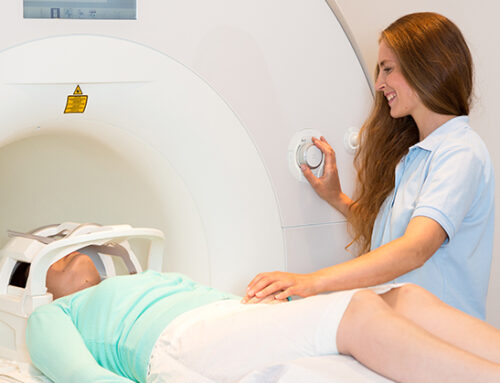As I’ve often pointed out, many researchers and drug companies who investigate brain health have been obsessed with eliminating the misshapen proteins – called amyloid and tau – that collect in the brains of some Alzheimer’s sufferers.
Yet, as I’ve also said before, those studies show time and again that doing away with these proteins, without any other kind of therapy, does not lead to memory improvement.
New research indicates that preventing damage to the blood-brain barrier could be much more fruitful than chasing rogue proteins. In fact, it could lead to a way to diagnose dementia early and maybe even protect the brain against memory loss once and for all.
We’ve written about the all-important blood-brain barrier many times in this newsletter. It’s the structure that surrounds blood vessels in the brain and keeps pathogens and toxins out of brain tissue.
Back in July we reported on a new study out of Australia that showed damage to this barrier which lies between the blood supply and the brain is a key cause of brain problems as we age.1
The Australian researchers found that your pulse pressure, which is the difference between the upper systolic and lower diastolic blood pressure reading, can lead to inflammation, oxidative stress, celluar malfunctions and cell death in the blood-brain barrier.
The end result is damage to, and disruption of, the brain’s neuronal networks which are necessary for a healthy memory.
The Australian researchers believe the science shows that pulse pressure is so important to avoiding Alzheimer’s that it needs to be the target in both the treatment and prevention of the disease.
Treating Alzheimer’s Disease
The Australian team points out that elevated pulse pressure found in people who have high blood pressure may be a key reason why merely eliminating amyloid beta from the brain doesn’t work in stopping Alzheimer’s-related memory loss.
As researcher Rachel Levin writes, “Combination therapy has been paramount in the treatment of other challenging diseases, in particular cancer. Therefore, in dementia, reducing elevated pulse pressure could prove to be synergistic with other therapeutic approaches such as anti-amyloid-beta drugs or stem cell therapy.”
Early Dementia Diagnosis
Since problems with the blood-brain barrier lead to neuron damage, this could also be used to diagnose Alzheimer’s disease at a very early stage, according to a study at the University of Southern California.
This five year study that involved 161 older adults demonstrated that the people with the most serious memory problems were suffering the most widespread leakage in the blood-brain barrier and the brain’s blood vessels. And these memory problems were occuringwhether or not their brains showed signs of being overrun with amyloid beta or tau.2
“The fact that we’re seeing the blood vessels leaking, independent of tau and independent of amyloid, when people have cognitive impairment on a mild level, suggests it could be a totally separate process or a very early process,” says researcher BerislavZlokovic, who directs the Zilkha Neurogenetic Institute at the Keck School of Medicine of USC. “That was surprising that this blood-brain barrier breakdown is occurring independently.”
Preventing Alzheimer’s
The lead author of the Australia study, Professor David Celermajer, said that disruption of the blood-brain barrier “is an important paradigm shift in our understanding of the pathogenesis of dementia.”
In his view, “a fifth to a quarter of Alzheimer’s might be due to this problem, but I think in almost anyone who is destined to get Alzheimer’s for whatever cause, genetic or otherwise, a high pulse pressure is an accelerant.”
So really the best thing you can do for the health of your blood-brain barrier at this point is to lower your pulse pressure. A normal pulse pressure is between 30 and 50, but this commonly increases with age as arteries lose flexibility. Of course, lowering pulse pressure begins with maintaining healthy blood pressure. A healthy diet is critical. So is exercise.
Research in Poland suggests exercise may be one of the best things you can do for your brain. The researchers say people who get exercise day after day tend to have the healthiest brains.3
I’m hoping these studies of the blood-brain barrier finally demonstrate to mainstream medical folks that their single-minded focus on tau and amyloid is truly a dead-end in the search for ways to treat Alzheimer’s.
Without a further explanation of what happens to the blood-brain barrier as we age, and the ways in which the body can keep this barrier fully functional for brain protection, we’ll never totally understand all the brain changes that lead to the devastation of Alzheimer’s disease and how to treat and prevent them.







